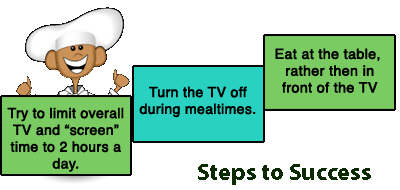Effects Of Too Much TV and Screen Time On Children and Younger Kids
Preschool Children and Television:
-
On average, preschool children spend 32 hours a week with screen media.
-
Direct exposure to TV and overall household viewing are associated with increased early childhood aggression.
-
The more time preschool children spend with screens, the less time they spend engaged in creative play which is the foundation of learning, constructive problem solving, and creativity
-
On average, preschool children see nearly 25,000 television commercials, a figure that does not include product placement.
-
Screen time can be habit-forming: the more time children engage with screens, the harder time they have turning them off as older children.
-
Screen time for children under 3 is linked to irregular sleep patterns and delayed language acquisition
-
The more time preschool children and babies spend with screens, the less time they spend interacting with their parents. Even when parents co-view, they spend less time talking to their children than when they’re engaged in other activities.
-
Toddler screen time is also associated with problems in later childhood, including lower math and school achievement, reduced physical activity, victimization by classmates [9], and increased BMI
School Aged Children and Television:

-
Children ages 8 -18 spend average of 4 1/2 hours per day watching television, 1 1/2 hours using computers, and more than an hour playing video games
-
Time spent with screens is associated with: childhood obesity, sleep disturbances and attention span issues
-
Children with 2 or more hours of daily screen time are more likely to have increased psychological difficulties, including hyperactivity, emotional and conduct problems, as well as difficulties with peers.
-
Children with a television in their bedroom are more likely to be overweight.
-
Especially high rates of bedroom televisions (70-74%) have been seen among racial/ethnic minority children aged 2 to 13 years.
Healthy Eating

Healthy Child

Written by Michelle Mirizzi
•
Written on Apr 15, 2012
•
Last updated on Mar 19, 2015



0 Comments